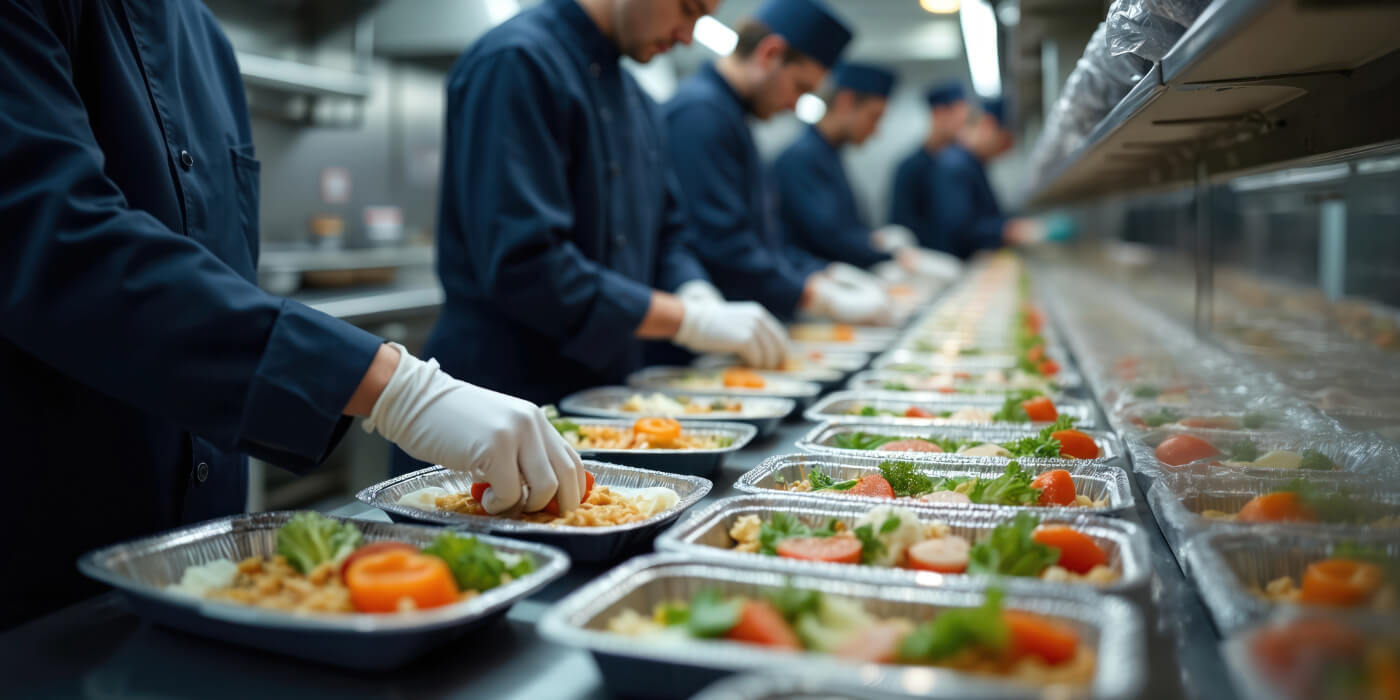Back on the Menu: Hospitality Welcomes Post-Brexit UK-EU Reset
Posted by Emily on 20th May 2025 Reading Time:
The UK and the EU have announced a new post-Brexit strategic partnership, offering fresh hope to a hospitality sector still navigating the consequences of Britain’s departure from the European Union. From easing red tape on food imports to potentially reviving cross-border mobility for young workers, the new agreements are being cautiously welcomed as a step toward long-awaited stability.
Editor’s Note: A separate article will follow the fishing provisions of the UK-EU agreement. It appears that little has changed, though criticism from sectors such as Scottish fisheries has emerged.
While some details remain finalised, especially on the youth mobility scheme, the agreement already marks significant progress in rebuilding economic and cultural ties strained by years of political uncertainty.
Easing the Flow of Food and Drink
At the heart of the agreement is a new Sanitary and Phytosanitary (SPS) deal designed to ease the importing and exporting food and drink between the UK and EU. Since Brexit, UK food and drink exports to the EU have fallen by 21%, and imports have dropped by 7%. Complicated checks and bureaucratic hold-ups at borders have frustrated producers and disrupted supply chains—especially for time-sensitive and perishable goods.
The new SPS deal promises to reduce routine checks on animal and plant products, allowing for smoother trade and potentially lowering prices for both businesses and consumers. This move could provide welcome relief for hospitality operators who have long struggled with erratic costs and limited availability.
Kate Nicholls, chief executive of UKHospitality, hailed the development as “positive news for hospitality businesses” and said it would “help to further increase access to high-quality, affordable food and drink for business and consumers alike.”
Rachel Dobson, managing director at Lynx Purchasing, added that reducing delays at the border is particularly important for fresh produce. While she cautioned that the full details of the agreement are still to emerge, she said anything that simplifies food movement is “likely to be welcome.”
Youth Mobility: A Targeted Solution, Not Free Movement
Another potentially transformative aspect of the agreement is the proposed youth mobility scheme. While still under negotiation, the plan would mirror the UK’s existing arrangements with countries such as Australia and New Zealand. These schemes typically allow young people aged 18 to 30 to apply for a visa permitting them to live and work abroad for up to two years. Applicants must show proof of savings, have a job offer, actively seek employment, and pay a health surcharge.

Importantly, these schemes are capped, with participant numbers expected to be broadly equal in both directions, ensuring reciprocity without the open-ended flow associated with pre-Brexit freedom of movement. The UK government has emphasised that this would not mark a return to previous EU mobility rules but instead offer controlled, mutually beneficial access.
The hospitality industry, which continues to face significant staffing shortages, sees this as a potential lifeline. Between 2019 and 2021, the number of EU nationals working in UK hospitality dropped by 26%, with an estimated 92,000 leaving the sector. As of mid-2024, nearly 100,000 vacancies remain in accommodation and food service roles.
According to Nicholls, a reciprocal youth experience scheme could bring economic benefits and “critical cultural exchange” that enriches customer experiences. “I urge both parties to pursue a model with maximum flexibility,” she said, “and mirroring existing schemes with Australia and New Zealand is a sensible approach.”
Lauren Broughton of UKInbound agreed, highlighting that young Europeans could offer valuable foreign language skills and contribute to regional growth in inbound tourism.
The British Beer and Pub Association also expressed support, with CEO Emma McClarkin calling the scheme a “fantastic opportunity” to bring new talent into the industry. However, she cautioned that meaningful progress would also require government action on domestic employment policies, particularly the proposed Employment Rights Bill.
Brewing Hope, With Conditions
For the pub and brewing sectors, the deal brings cautious optimism. Reduced trade barriers may help sourcing ingredients and exporting products, particularly as many in the industry grapple with increased costs and regulatory burdens.
McClarkin noted the importance of ensuring this agreement translates into genuine economic relief. “We wait to learn more,” she said, “but I sincerely hope this deal makes it easier for us to maximise our trading potential.”
In the meantime, some are calling for a renewed focus on local supply chains. Dobson noted that the hospitality sector can support British agriculture and fishing by sourcing domestic produce and championing fresh seafood through “catch of the day” specials.
What Comes Next?
The government has framed the agreement as a practical step forward—ending political squabbling and focusing on common-sense cooperation. Prime Minister Keir Starmer said it was “time to move on from stale old debates” and “find practical solutions that get the best for the British people.”
The agreement also includes a 12-year fishing deal, which we will cover in a separate article. For now, little has changed, though industry representatives, particularly in Scotland, have already raised concerns.
For now, the hospitality industry will be watching closely. Much hinges on how the youth mobility scheme is implemented and whether the reduced food trade barriers translate into real-world cost savings and supply stability. Still, after years of upheaval, the direction of travel appears more constructive.




